 A Nightingale of Yesterday
A Nightingale of YesterdayIt was on November 2, 1887, that death contrived to silence one of the richest, purest, and most beautiful voices by which human ears have ever been enchanted. It was the distinguishing triumph of Jenny Lind that she was able to attune herself to the tastes and temperaments of those whose musical sensibilities had never attained to the lofty level on which she herself so naturally and familiarly moved. Once in a generation there appears a Lind, a Patti, or a Melba—a divinely-gifted songster whose musical range and understanding appear to be absolutely without a limit. But for one such prodigy there are millions who, possessing musical talent and technique of the most modest quality, can nevertheless be profoundly moved by a haunting song, that conveys to their ears a concourse of sweet harmonious sounds and to their minds an intelligible sentiment. With these millions of musical mediocrities the average genius has little or no patience. Even Dame Melba—who could scold like a termagant as well as sing like an archangel—would at times unmercifully hector these unfortunates. "Do you realise," she exclaimed, during the last year of her public life, "that when I go to big towns which possess, according to popular tradition, such excellent taste, I am compelled to sing, time and again, the same old songs? Wherever I go, people ask me to sing Tosti's 'Goodbye,' 'Comin' through the Rye,' 'Home Sweet Home,' and all the other old tunes that they have heard a thousand times! I try Debussy, I try Dupare, Ravel; I try anything and everything which strikes me as beautiful and fresh, and always I am greeted with the same response. People ask for the old favourites and receive them with positive uproar. I have no patience with it!"
By way of contrast, Jenny Lind betrayed an intense and even affectionate sympathy with people of this class. She mastered the high art of educating and cultivating the musical taste of the ordinary people by exciting the latent powers that they already possessed and by leading them from that point to something higher than the lowly standard that they had already attained. She recognised that to set before them music of the highest quality in such a way as to establish no point of contact with the sense of melody that slumbered, undeveloped, within them, was simply to weary and repel them. She therefore met them on their own ground; she entertained them most charmingly; and, winning alike their devotion and their confidence, she gradually led them to those more exalted altitudes in which she herself luxuriated.
The love of music cherished by the average man is a subtle affair. He ought, ideally, to love music for its own sake. Unhappily, however, he has not yet attained to that aesthetic pitch of celestial perfection. He loves music, but loves it not so much for its own sake as for the sake of the emotional and psychological effect that it has upon him. On a pleasant Summer evening he will saunter within sound of a band and enjoy to the full the harmony that it dispenses, but will suddenly become aware that he is not only listening to music but is looking at pictures. What memories those familiar tunes revive! The first time that he heard that particular air was at a school-treat in England many years ago. It all comes back to him with cinematographic vividness as he listens once more to the inspiriting strains. He can see the procession, the banner, the field ablaze with buttercups, the games, the races, the scrambles, the old dominie, the teachers and the old familiar faces.
A second tune reminds him of a fete to which he was once talken. The tawny tents and the sensational sideshows, with all their gaudy accessories, stand once more before him. The giants and the dwarfs, the freaks and the monstrosities, the performing dogs and the tame snakes, the waxworks and the merry-go-rounds, how they all rush back to mind! He sees again the highly-coloured daubs that proclaimed to all and sundry the marvels to be witnessed on the other side of the canvas; he hears again the strident voices of the showmen; he can even smell the trampled sawdust that so plentifully besprinkled the grassy floor of each tent.
A third tune brings back to memory an exciting cricket match that he once attended. While that very one was being played by the band more shall 20 years ago, a brilliant young player—one of the idols of his youth—brought off a most amazing and spectacular catch, imparting to the game a totally new complexion. The ground as it appeared at that moment, the astonished and applauding crowd; the retiring batsman; the feeling that the match had entered upon a new phase; all these recur to his mind, under the spell of the symphony, more clearly than they have done for many years. Other music, considered as music, might have been just as beautiful but it could not have been as enjoyable to them. For these old and well-remembered tunes unlock the secret treasures of his heart, and, beneath their magic, memory outpours her precious hoard.
The practical and womanly sagacity of Jenny Lind enabled her frankly to recognise that, quite apart from music's own intrinsic value, this appeal—the appeal that it makes to sentiment and to memory—constitutes one of its greatest and most imperishable charms. Moreover, she had the penetration to perceive that the very ability to be moved in this dreamy and reminiscent way argues a substratum of genuine musical appreciation. For the very fact that a man remembers a certain tune, and recognises it when he hears it again, proves conclusively that the melody captivated his fancy and made an indelible impression upon his mind when he heard it for the first time. Jenny Lind would have argued that the series of pictures arising out of the past—the pictures that were presented to his mind as he listened to the strains of the band—abundantly demonstrated the fact that a good tune has an inherent virtue of its own; else how could this man have carried it in his heart through all the years and recognised it again so easily? The domestic and historical associations that gather about the tune are merely a supplementary tribute to its essential worth. Carlyle has shown that when the stirring chords of the Marseillaise first fell upon the ears of the grim and silent revolutionists, the effect was instantaneous electrical. But today those same chords are invested with traditional significance, and to that extraneous and correlative fact they indisputably owe much of the extraordinary influence. The recollections that have become interwoven with the strains make such an appeal to the hearts of the Frenchmen that they will, with that music ringing in their ears, dare any death or make any sacrifice. "The sound of the Marseillaise," Carlyle says, "will make the blood tingle in men's veins; whole armies and assemblies will sing it, with eyes weeping and burning, with hearts defiant of Death, Despot, and Devil."
In another essay he gives a concrete illustration. He instances the perilous position in which the French Army found itself in the struggle with Austria. "Dumouriez is swept back on this wing, and swept back on that, and is like to be swept back utterly, when he rushes up in person, speaks a prompt word or two, and uplifts the Hymn of the Marseillaise. Every heart leaps at the sound; they rally, they advance, they rush death-defying, man-devouring; carry batteries, redoubts, whatsoever is to be carried; and, like the fire-whirlwind, sweep all manner of Austrians from the scene of action." It was like Orpheus, Carlyle adds, building the Walls of Thebes by the mere sound of his lyre. And, reverting to the matter in his essay on Natural Supernaturalism, he avers that not only was Thebes built by the music of an Orpheus, but that, without the music of some inspired Orpheus was no city ever built; without it no work in which man glory was ever done.
Jenny Lind felt that the high priests and vestal virgins who serve the pure altars of the muses must not hurl impatient and unsympathetic maledictions upon the multitude whose ears are less sensitive and whose voices are less tuneful than their own. It by no means follows, because a born minstrel can detect the gentlest vibrations and finest gradations of aural sweetness, that those who possess no such nicely-adjusted powers of perception and discrimination are utterly destitute of musical appreciation or ability.
Music is music, and music, like wisdom, is justified of all its children. We all take pride in those who, highly-endowed and skilfully-trained, take their places by every right as the princes and peers of music's rapturous realm. Is it too much to ask, in return, that they from their supernal eminence, should accord us some thing a little less caustic than disdain? It may be true that our only evidence of aesthetic susceptibility consists in a vulgar fondness for pretty or familiar melodies. But the very fact that we fell in love with those attractive airs before they became familiar argues that, somewhere within the compass of our complex composition, there is a dormant capacity to applaud a lovely sound when we hear it. The circumstance that the eye brightens and the face lights up to the music of any tune is proof that we are not altogether beyond hope. Right down to the moment of her death on that late Autumn evening in 1887, Jenny Lind insisted that the pontiffs and potentates of the musical world must welcome the responsiveness of the rabble in whatever way it is exhibited, and must strive, by means of it, to lead the popular taste to a still loftier and purer plane.
F W Boreham
Image: Jenny Lind
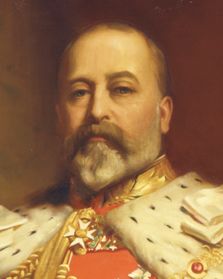 A Modest Regime
A Modest Regime A Princely Poet
A Princely Poet
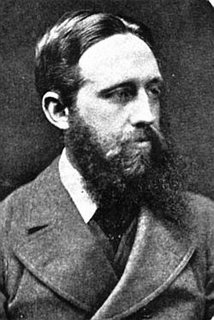 A Prince of Naturalists
A Prince of Naturalists A Rugged Bard
A Rugged Bard
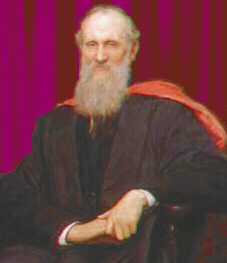
 A Nightingale of Yesterday
A Nightingale of Yesterday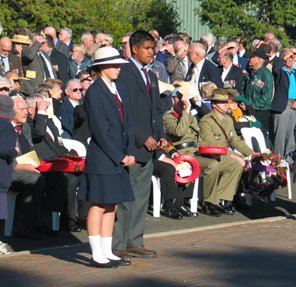 Festival of Memory
Festival of Memory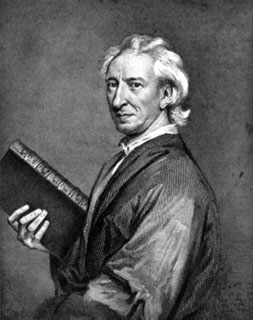 The Triumph of a Busybody
The Triumph of a Busybody

 God Speed the Plough
God Speed the Plough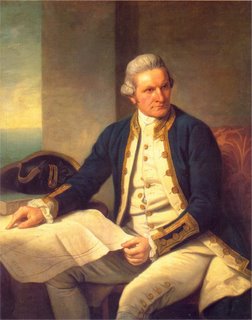
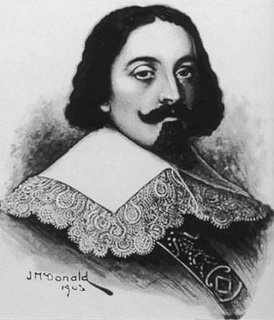 Charting a New World
Charting a New World The Singer of the Sunrise
The Singer of the Sunrise
